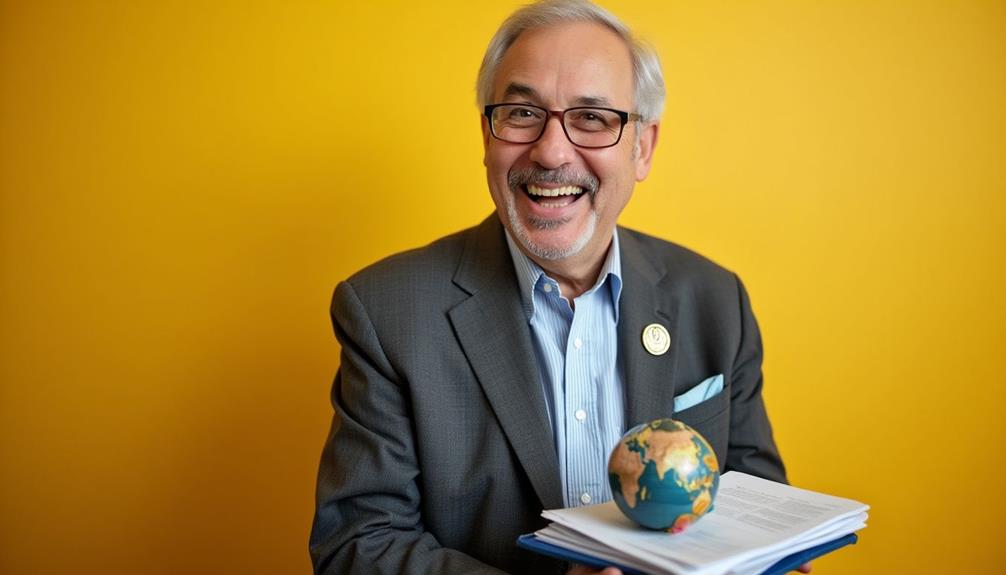
- The IMF predicts modest global economic growth in the coming years, influenced by factors like geopolitical tensions, pandemic recovery, and shifting trade dynamics.
- The IMF supports countries in achieving sustainable economic growth by providing financial assistance, technical advice, and policy guidance aimed at fostering economic stability and structural reform.
- In managing economic crises, the IMF plays a crucial role by offering emergency funding, debt restructuring, and expert policy advice to stabilize economies.
- Criteria for IMF assistance include a country's financial need, commitment to reform, and potential to achieve sustainable economic outcomes.
- The effectiveness of IMF policies in stimulating economic growth is debated, but they generally help stabilize economies in crisis though long-term growth effects can vary significantly by country and situation.
When it comes to navigating the complex world of international finance, the International Monetary Fund (IMF) plays a pivotal role, especially in low-income countries.
In This Article, You Will Discover:
IMF, with its 190 member countries, works tirelessly to provide financial assistance and policy guidance to member nations facing economic challenges.
Let's delve into the overview of IMF assistance and the impact it has on the economies of these nations.
Overview of IMF Assistance
IMF is known for offering various types of financial assistance to its member countries to help them tackle monetary and balance of payment issues.
This assistance can come in the form of loans, financial support, and capacity development programs aimed at promoting financial stability and sustainable growth.
Types of Financial Assistance Provided by IMF
The IMF provides loans and financial support to countries hit by balance of payments problems.
These loans are designed to restore economic stability and growth, supporting economic policies that promote financial and economic stability in low-income countries.
Policy Advice and Recommendations
In addition to financial assistance, the IMF also offers policy advice and recommendations to help countries manage their economies effectively.
This includes guidance on exchange rates, interest rates, and overall economic policies to achieve sustainable growth and prosperity.
IMF Response to the COVID-19 Pandemic
During the COVID-19 pandemic, the IMF has been actively supporting member countries through its financial assistance programs and tailored policy advice.
The IMF programs aim to help countries navigate the economic challenges brought about by the global health crisis and promote stability and growth in the face of uncertainty.
IMF Lending Programs
Understanding IMF loans involves delving into the various financial assistance programs the International Monetary Fund provides to its member countries, especially those facing monetary and balance of payment challenges.
The IMF's lending programs are designed to restore economic stability and promote sustainable growth in low-income countries through tailored financial support and policy advice.
Conditions Attached to IMF Loans
IMF loans come with specific conditions that borrowing countries must meet to access financial assistance.
These conditions typically include implementing structural reforms, fiscal consolidation measures, and other policy adjustments aimed at improving the country's economic outlook and ensuring repayment of the loan.
Impact of IMF Lending on Low-Income Countries
IMF lending can have a significant impact on low-income countries by providing them with the necessary resources to address economic challenges and promote stability and growth.
However, the conditions attached to IMF loans can also pose challenges for these nations, influencing their economic policies and development trajectory.
Role of IMF in Low-Income Countries
The IMF supports low-income countries by offering financial assistance, policy guidance, and capacity development programs to help them navigate economic challenges and promote sustainable growth.
Through its expertise in monetary and fiscal policies, the IMF aims to create a conducive environment for economic development in these nations.
Challenges Faced by IMF Programs in Low-Income Countries
IMF programs in low-income countries often encounter challenges such as implementation hurdles, policy constraints, and social implications of reform measures.
Balancing the need for economic stability with social welfare concerns poses a significant challenge for IMF programs in these nations.
IMF and World Bank Collaboration in Low-Income Nations
The collaboration between the IMF and the World Bank in low-income countries is crucial for harmonizing financial assistance and policy advice to support sustainable development.
By working together, these institutions can leverage their strengths and expertise to address complex economic challenges faced by low-income countries.
Common Questions
IMF policies and initiatives have a significant impact on the global economy.
Here are some common questions about the International Monetary Fund and its role in promoting economic stability and growth around the world.
What Are the IMF's Predictions for Global Economic Growth?
How Does the IMF Support Countries to Achieve Sustainable Economic Growth?
What Role Does the IMF Play in Managing Economic Crises?
What Are the Criteria for IMF Assistance in Economic Development?
How Effective Are IMF Policies in Stimulating Economic Growth?
Conclusion
IMF lending and conditionality in low-income countries, supported by IMF member countries, play a crucial role in providing economic assistance to nations in need.
The IMF offers loans to low-income countries to provide breathing room as they implement policies that promote financial stability and economic well-being.
The IMF also provides concessional financial assistance and works to achieve sustainable growth through economic cooperation.
IMF staff, with guidance from the Executive Board and Managing Director, monitor the day-to-day work of the IMF to ensure that IMF financing is used effectively.
The Board of Governors, composed of representatives from all IMF member countries, governs the IMF and sets quotas for each country.
This governance structure ensures that the IMF remains a key player in the global financial system.



